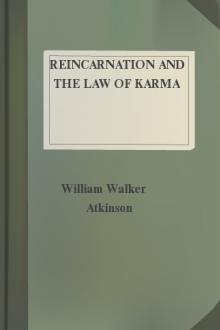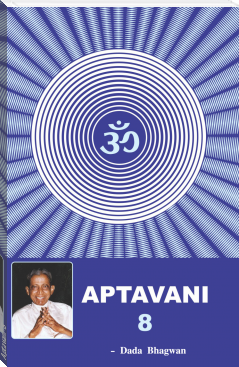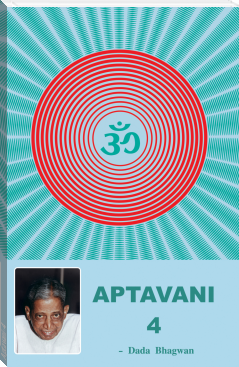Reincarnation and the Law of Karma, William Walker Atkinson [best e book reader for android .TXT] 📗

- Author: William Walker Atkinson
- Performer: -
Book online «Reincarnation and the Law of Karma, William Walker Atkinson [best e book reader for android .TXT] 📗». Author William Walker Atkinson
The third phase of the question: "What is the final state or abode of the soul?" is one that reaches to the very center or heart of philosophical and religious thought and teaching. Each philosophy and religion has its own explanation, or interpretation of the Truth, and it is not for us to attempt to select one teaching from the many in this work. The reader will find many references to these various explanations and teachings as he reads the several chapters of this book, and he may use his own discrimination and judgment in selecting that which appeals to him the most strongly. But he will notice that there is a fundamental agreement between all of the teachings and beliefs—the principle that the movement of the soul is ever upward and onward, and that there is no standing still in spiritual development and unfoldment. Whether the end—if end there be—is the reaching of a state of Bliss in the presence of the Divine One—or whether the weary soul finds rest "in the Bosom of the Father," by what has been called "Union with God"—the vital point for the evolving soul is that there is "a better day coming"—a haven of rest around the turn of the road. And whatever may be the details of the Truth, the fact remains that whatever state awaits the soul finally, it must be Good, and in accordance with Divine Wisdom and Ultimate Justice and Universal Love.
The majority of occultists look forward to an end in the sense of being absorbed in the Divine Being, not in the sense of annihilation, but in the sense of reaching a consciousness "of the Whole in the Whole"—this is the true meaning of "Nirvana." But whether this be true, or whether there is a place of final rest in the highest spiritual realms other than in the sense of absorption in the Divine, or whether there is a state of Eternal Progression from plane to plane, from realm to realm, on and on forever Godward, and more and more God-like—the End must be Good, and there is nothing to Fear, for "the Power that rules Here, rules There, and Everywhere. And remember this, ye seekers after ultimate truths—the highest authorities inform us that even the few stages or planes just ahead of us in the journey are so far beyond our present powers of conception, that they are practically unknowable to us—this being so, it will be seen that states very much nearer to us than the End must be utterly beyond the powers not only of our understanding but also of our imagination, even when strained to its utmost. This being so, why should we attempt to speculate about The End? Instead, why not say with Newman:
It is said that when Thoreau was dying, a friend leaned over and taking him by the hand, said: "Henry, you are so near to the border now, can you see anything on the other side?" And the dying Thoreau replied: "One world at a time, Parker!" And this seems to be the great lesson of Life—One Plane at a Time! But though the Veil of Isis is impossible of being lifted entirely, still there is a Something that enables one to see at least dimly the features of the Goddess behind the veil. And that Something is that Intelligent Faith that "knows," although it is unable to explain even to itself. And the voice of that Something Within informs him who has that Faith: All Is Well, Brother! For beyond planes, and states, and universes, and time, and space, and name, and form, and Things—there must be THAT which transcends them all, and from which they all proceed. Though we may not know what THAT is—the fact that It must exist—that It IS, is a sufficient guarantee that the LAW is in constant operation on all planes, from the lowest to the highest, and that THE COSMOS IS GOVERNED BY LAW! And this being so, not even an atom may be destroyed, nor misplaced, nor suffer Injustice; and all will attain the End rightly, and know the "Sat-chit-ananda" of the Hindus—the Being-Wisdom-Bliss Absolute that all philosophies and religions agree upon is the Final State of the Blessed. And to the occultist All are Blessed, even to the last soul in the scale of life. And over all the tumult and strife of Life there is always that Something—THAT—silently brooding, and watching, and waiting—the Life, Light, and Love of the All. Such is the message of the Illumined of all ages, races, and lands. Is it not worthy of our attention and consideration?
CHAPTER VIII.There are three views entertained by men who believe in the existence of the soul—there are many shades of belief and opinion on the subject, but they may be divided into three classes. These three views, respectively, are as follows: (1) That the soul is specially created by the Supreme Power at the time of conception, or birth, and that its position on earth, its circumstances, its degree of intelligence, etc., are fixed arbitrarily by that power, for some inscrutable reason of its own; (2) That the soul was pre-existent, that is, that it existed before conception and birth, in some higher state not understood by us, from whence it was thrust into human form and birth, its position on earth, its circumstances, its degree of intelligence, etc., being determined by causes unknown to us; (3) That the soul is one of countless others which emanated from the Source of Being at some period in the past, and which souls were equal in power, intelligence, opportunity, etc., and which worked its way up by spiritual evolution from lowly forms of expression and life to its present state, from whence it is destined to move on and on, to higher and still higher forms and states of existence, until in the end, after millions of æons of existence in the highest planes of expressed life it will again return to the Source of Being from which it emanated, and becomes "one with the Father," not in a state of annihilated consciousness, but in a condition of universal consciousness with All. This view holds that the present condition of each soul is due to its own progress, development, advancement, unfoldment, or the lack of the same—the soul being its own Fate and Destiny—the enforcer of the Law upon itself, under the Law of Karma.
Considering the first named view, namely that the soul is newly created, and that its condition has been arbitrarily fixed by the Divine Power, the student free from prejudice or fear finds it difficult to escape the conclusion that under this plan of creation there is lacking a manifestation of Divine Justice. Even admitting the inability of the finite mind to fully grasp infinite principles, man is still forced to the realization of the manifest inequality and injustice of the relative positions of human beings on earth, providing that the same is thrust arbitrarily upon them; and it would seem that no amount of future reward could possibly equalize or explain these conditions. Unless there be "something back of it all," it would certainly seem that Injustice was manifested. Of course, many argue that the idea of Justice has nothing to do with the universal processes, but all who think of a Divine Being, filled with Love, and Justice, are compelled to think that such qualities must manifest themselves in the creations of such a Being. And, if there be nothing "back of it all," then the candid observer must confess that the scheme of Justice manifested is most faulty according even to the human imperfect idea of Justice.
As Figuier, a French writer said about forty years ago: "If there are a few men well organized, of good constitution and robust health, how many are infirm, idiotic, deaf-mute, blind from birth, maimed, foolish and insane? My brother is handsome and well-shaped: I am ugly, weakly, rickety, and a hunchback. Yet we are sons of the same mother. Some are born into opulence, others into the most dreadful want. Why am I not a prince and a great lord, instead of a poor pilgrim on the earth, ungrateful and rebellious? Why was I born in Europe and at Paris, whereby civilization and art life is rendered supportable and easy, instead of seeing the light under the burning skies of the tropics, where, dressed out in a beastly muzzle, a skin black and oily, and locks of wool, I should have been exposed to the double torments of a deadly climate and a barbarous society? Why is not a wretched African negro in my place in Paris, in conditions of comfort? We have, either of us, done nothing to entitle us to our assigned places: we have invited neither this favor nor that disgrace. Why is the unequal distribution of the terrible evils that fall upon some men, and spare others? How have those deserved the partiality of fortune, who live in happy lands, while many of their brethren suffer and weep in other parts of the world?"
Figuier continues: "Some men are endowed with all benefits of mind; others, on the contrary, are devoid of intelligence, penetration and memory. They stumble at every step in their rough life-paths. Their limited intelligence and their imperfect faculties expose them to all possible mortifications and disasters. They can succeed in nothing, and Fate seems to have chosen them for the constant objects of its most deadly blows. There are beings who, from the moment of their birth to the hour of their death, utter only cries of suffering and despair. What crime have they committed? Why are they here on earth? They have not petitioned to be here; and if they could, they would have begged that this fatal cup might be taken from their lips. They are here in spite of themselves, against their will. God would be unjust and wicked if he imposed so miserable an existence upon beings who have done nothing to incur it, and have not asked for it. But God is not unjust or wicked: the opposite qualities belong to his perfect essence. Therefore the presence of man on such or such parts of the earth, and the unequal





Comments (0)